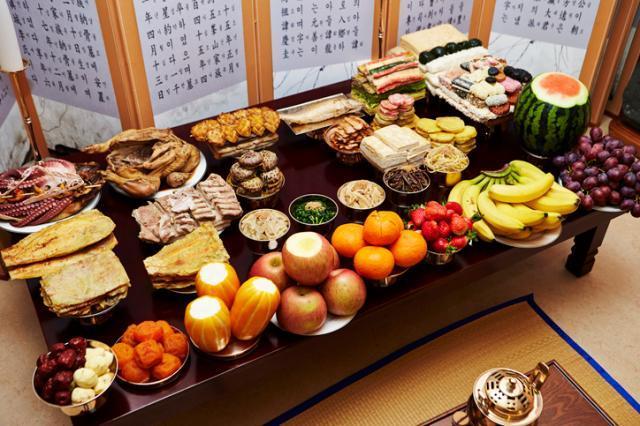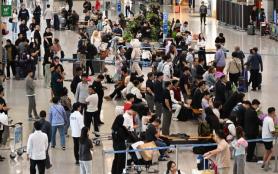
SEOUL -- About 56 percent of South Koreans plan not to hold "Jesa," a traditional Confucian ceremonial ritual held to commemorate dead ancestors on the day they died, a survey showed. According to the survey, people feel burdened by the amount of food they have to prepare for the rite, and they think it should be simplified or replaced with a short and simple family gathering.
Jesa is a Confucian rite that involves every family member who are direct descendant of the dead ancestor. Normally, up to three generations of family members gather at the eldest member's home and prepare an offering table that consists of dozens of food menus including meat, vegetables, fruits, and confectioneries.
The size of the offering table varies by family or the region the family originated from. Housewives would gather at the place where Jesa would be held in the morning and start cooking food that would be served to ancestors at around 10:00 p.m. When the rite was finished, family members would sit around the offering table and share the food. Leftovers are neatly packed and handed to each family so that they can eat them later.
Jesa is also held on the morning of the Lunar New Year Day and "Chuseok," the traditional Korean autumn harvest festival, to make offerings for the ancestors and wish them good luck. The Confucian rites held during the festivities are called "Charye" and the offering table is normally filled with food made with seasonal ingredients.
According to a survey of 1,500 South Koreans aged 20 years and older, conducted by Sungkyunkwan, an ancient Korean educational institute based on Confucian teachings, in October 2023, showed that 55.9 percent of the people have no plans to hold Jesa in the future, while 62.2 percent said that they regularly still hold the Confucian ritual.
The main reason people said that they no longer are planning to hold Jesa was because they felt it would be better if they replaced the rite with a simple family gathering (41.2 percent). Some people felt that Jesa is an outdated tradition and is no longer needed (27.8 percent), and 13.7 percent said that they would not hold Jesa because of religious reasons.
Meanwhile, among those who plan to hold the traditional rite, 42 percent said that they would continue to hold Jesa to commemorate their dead ancestors and 23.4 percent said that they will not stop because the regular rite is a good opportunity to meet family members. 10 percent said that Jesa should be kept because it is a tradition.
Some people felt that Jesa would be easier if it were held earlier in the day while some other people thought the rite could become a lesser burden if the kinds of offered food were decreased. Sungkyunkwan said that the ancient educational institute will release new modernized standards and guidelines for Jesa based on the survey, on November 2.
Copyright ⓒ Aju Press All rights reserved.




